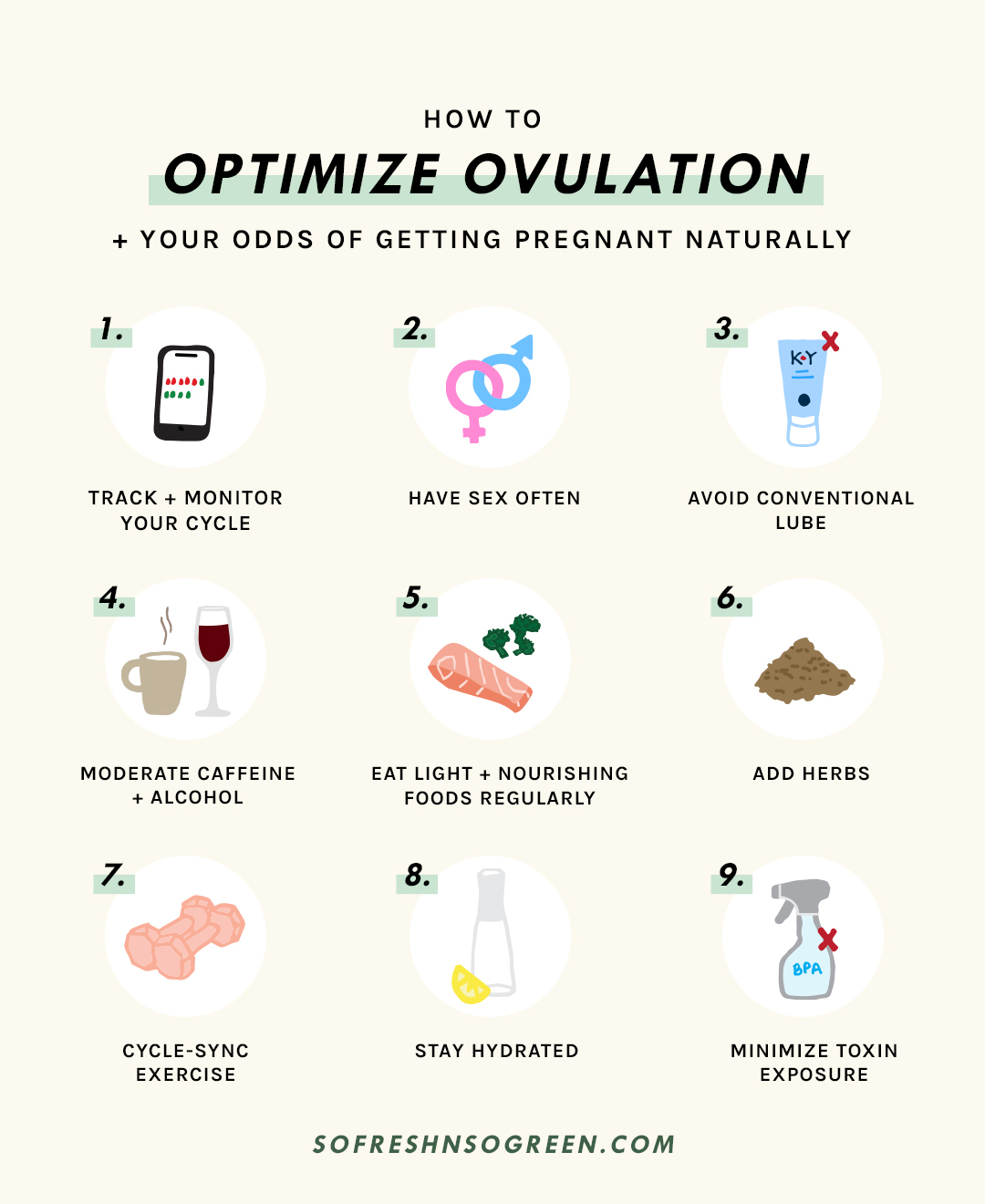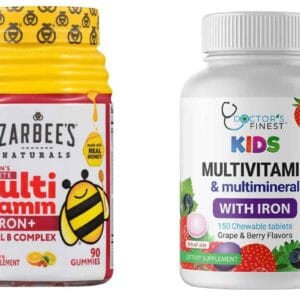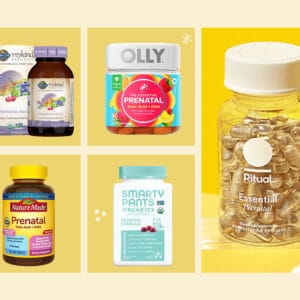When trying to conceive, a woman’s body requires optimal nutrition to support reproductive health. A well-balanced diet is essential, but it can be challenging to get all the necessary nutrients from food alone. This is where a multivitamin can help fill the nutritional gaps. Choosing the right multivitamin is crucial, as different formulas cater to different needs. For women trying to conceive, a multivitamin that is specifically designed to support fertility can be beneficial. The best multivitamin for trying to conceive should contain essential nutrients that promote reproductive health and support a healthy pregnancy.

Key Nutrients to Look for in a Multivitamin When Trying to Conceive
When trying to conceive, it’s essential to fuel your body with the right nutrients to support reproductive health. A well-chosen multivitamin can help fill any nutritional gaps in your diet. To maximize the benefits, look for a multivitamin that contains folic acid, iron, and antioxidants such as vitamins C and E. These nutrients play a crucial role in supporting ovulation, fertilization, and fetal development.
Importance of Folic Acid
Folic acid is a critical nutrient when trying to conceive, as it helps prevent birth defects of the brain and spine. The recommended daily intake of folic acid is 400-800 mcg. A multivitamin that contains folic acid can help ensure you’re getting enough of this essential nutrient.
| Food Sources | Folic Acid Content (mcg) |
|---|---|
| Dark leafy greens (spinach, kale) | 100-200 |
| Legumes (chickpeas, black beans) | 100-200 |
| Fortified cereals | 400-600 |
Role of Iron in Conception
Iron is vital for maintaining healthy red blood cells and supporting ovulation. Iron deficiency can lead to anemia, which can negatively impact fertility. A multivitamin that contains iron can help ensure you’re getting enough of this essential nutrient.
| Food Sources | Iron Content (mg) |
|---|---|
| Red meat (beef, lamb) | 3-5 |
| Poultry (chicken, turkey) | 2-3 |
| Legumes (lentils, chickpeas) | 3-5 |
Antioxidants and Reproductive Health
Antioxidants such as vitamins C and E help protect the body from oxidative stress, which can damage reproductive cells. A multivitamin that contains antioxidants can help support overall reproductive health.
| Food Sources | Antioxidant Content |
|---|---|
| Berries (blueberries, strawberries) | High in vitamin C |
| Nuts and seeds (almonds, sunflower seeds) | High in vitamin E |
| Leafy greens (spinach, kale) | High in both vitamins C and E |
Other Essential Nutrients for Conception
In addition to folic acid, iron, and antioxidants, other essential nutrients for conception include omega-3 fatty acids, zinc, and selenium. These nutrients support overall reproductive health and can help improve fertility.
| Nutrient | Food Sources |
|---|---|
| Omega-3 fatty acids | Fatty fish (salmon, sardines), flaxseeds |
| Zinc | Oysters, beef, chicken, pumpkin seeds |
| Selenium | Brazil nuts, fish (tuna, sardines), turkey |
Choosing the Right Multivitamin
When selecting a multivitamin, look for a product that contains a balanced blend of essential nutrients. Consider a multivitamin that is specifically formulated for women’s health or preconception. Always consult with a healthcare professional before starting any new supplement regimen.
Which multivitamin is best for getting pregnant?

When trying to conceive, it’s essential to choose a multivitamin that contains the right nutrients to support reproductive health. The best multivitamin for getting pregnant is one that includes folic acid, iron, and other essential vitamins and minerals.
Nutrients to Look for in a Multivitamin
A multivitamin that is rich in folate and other B vitamins is crucial for preventing birth defects and supporting fetal development. In addition to folic acid, other essential nutrients include vitamin D, calcium, and omega-3 fatty acids. These nutrients help to regulate ovulation, support sperm health, and promote a healthy pregnancy. Some key nutrients to look for in a multivitamin include:
- Folic acid: prevents birth defects of the brain and spine
- Iron: supports healthy ovulation and fetal development
- Vitamin D: regulates calcium levels and supports bone health
Multivitamin Ingredients to Support Fertility
Some multivitamins contain additional ingredients that can support fertility, such as antioxidants and herbal extracts. Antioxidants like vitamin C and vitamin E help to protect sperm and egg cells from damage, while herbal extracts like chasteberry may help to regulate menstrual cycles and improve fertility. When choosing a multivitamin, consider one that includes these additional ingredients to support reproductive health. Some key ingredients to look for include:
- Antioxidants: protect sperm and egg cells from damage
- Chasteberry: regulates menstrual cycles and improves fertility
- Probiotics: supports gut health and immune function
Preconception Multivitamin Considerations
When choosing a multivitamin to support fertility, it’s essential to consider the quality and purity of the product. Look for a multivitamin that is manufactured by a reputable company and has been tested for purity and potency. Additionally, consider a multivitamin that is specifically formulated for preconception, as these products are designed to support reproductive health and fetal development. Some key considerations include:
- Third-party testing: ensures purity and potency
- Preconception formulation: supports reproductive health and fetal development
- No unnecessary additives: avoids artificial colors, flavors, and preservatives
What can I use to boost my fertility to get pregnant?

To boost fertility and increase the chances of getting pregnant, several factors and supplements can be considered. A combination of a healthy lifestyle, a balanced diet, and certain nutrients can play a significant role in enhancing fertility.
Nutritional Supplements for Fertility
Certain nutritional supplements are believed to have a positive impact on fertility. These supplements often contain antioxidants, folic acid, and other nutrients that can help improve reproductive health. Some key supplements include:
- Folic acid and other B vitamins, which are crucial for preventing birth defects and supporting ovulation.
- Omega-3 fatty acids, which help in regulating hormones and improving overall reproductive health.
- Antioxidants like vitamin C and E, which help reduce oxidative stress and improve egg and sperm quality.
Lifestyle Changes to Enhance Fertility
Making certain lifestyle changes can significantly impact fertility. Adopting a healthier lifestyle can improve overall reproductive health and increase the chances of conception. Key changes include:
- Maintaining a healthy weight, as being overweight or underweight can affect hormone production and ovulation.
- Reducing stress through techniques like meditation, yoga, or other relaxation methods, as high stress levels can negatively impact fertility.
- Avoiding excessive alcohol consumption and quitting smoking, as both can impair fertility in both men and women.
Dietary Changes for Improved Fertility
Diet plays a crucial role in fertility. Incorporating certain foods into one’s diet can help improve reproductive health. Some beneficial dietary changes include:
- Consuming foods rich in antioxidants, such as fruits, vegetables, and nuts, which help protect the eggs and sperm from damage.
- Eating foods high in fiber, like whole grains, which can help regulate blood sugar and insulin levels, thereby supporting fertility.
- Including lean protein sources and healthy fats in the diet, which are essential for hormone production and overall health.
What prenatal vitamins should I take while trying to get pregnant?

When trying to conceive, it’s essential to take prenatal vitamins that support a healthy pregnancy. Prenatal vitamins provide essential nutrients that help prevent birth defects and support fetal development. The most critical nutrients include folic acid, iron, and calcium. Folic acid helps prevent neural tube defects, while iron supports the production of red blood cells, and calcium is crucial for fetal bone development.
Key Nutrients in Prenatal Vitamins
Prenatal vitamins typically contain a combination of vitamins and minerals that support a healthy pregnancy. The most important nutrients include:
- Folic acid: prevents neural tube defects and supports fetal development
- Iron: supports the production of red blood cells and prevents anemia
- Calcium: crucial for fetal bone development and supports maternal bone health
Choosing the Right Prenatal Vitamin
When selecting a prenatal vitamin, look for a product that contains the recommended daily intake of essential nutrients. Consider the following factors:
- Nutrient content: ensure the vitamin contains folic acid, iron, and calcium
- Brand reputation: choose a reputable brand that adheres to good manufacturing practices
- Certifications: look for certifications from third-party organizations, such as the National Science Foundation
Additional Considerations
In addition to taking prenatal vitamins, a healthy diet and lifestyle can support a healthy pregnancy. Consider the following:
- Dietary changes: focus on consuming a balanced diet rich in whole foods, fruits, and vegetables
- Lifestyle modifications: avoid smoking, limit caffeine intake, and maintain a healthy weight
- Consult a healthcare provider: discuss your prenatal vitamin options with a healthcare provider to determine the best course of action
Frequently Asked Questions
What are the key nutrients in a multivitamin that support conception?
When trying to conceive, it’s essential to take a multivitamin that contains folic acid, iron, and antioxidants like vitamins C and E. Folic acid is crucial for preventing birth defects of the baby’s brain and spine. A multivitamin with iron helps support the production of healthy red blood cells, which is vital for a healthy pregnancy. Additionally, antioxidants help protect the eggs and sperm from damage caused by free radicals, increasing the chances of a successful conception.
How does a prenatal multivitamin differ from a regular multivitamin?
A prenatal multivitamin is specifically formulated to support the health of women who are trying to conceive or are already pregnant. Unlike regular multivitamins, prenatal multivitamins contain higher levels of folic acid and iron, which are essential for fetal development and preventing birth defects. They may also contain other nutrients like calcium and omega-3 fatty acids, which support the health of the mother and the developing baby.
Can taking a multivitamin increase my chances of getting pregnant?
While a multivitamin cannot guarantee pregnancy, taking a well-formulated multivitamin can help support reproductive health and increase the chances of conception. A multivitamin that contains essential nutrients like folic acid, iron, and antioxidants can help optimize the health of the eggs and sperm, making it easier to conceive. Additionally, a multivitamin can help fill any nutritional gaps in the diet, ensuring that the body is getting all the necessary nutrients to support a healthy pregnancy.
Are there any multivitamins that are specifically designed for women trying to conceive?
Yes, there are many prenatal multivitamins on the market that are specifically designed for women trying to conceive. These multivitamins are formulated to support reproductive health and provide essential nutrients for a healthy pregnancy. When choosing a multivitamin, look for one that contains key nutrients like folic acid, iron, and antioxidants, and is manufactured by a reputable company. It’s also a good idea to consult with a healthcare provider to determine the best multivitamin for your individual needs.














